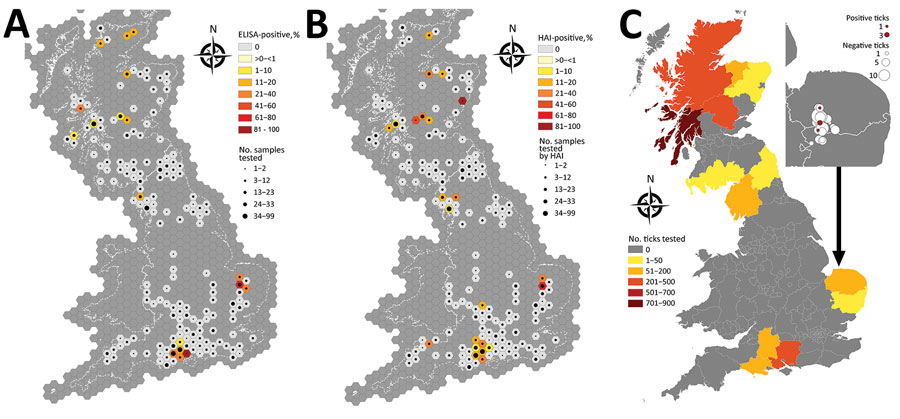Volume 26, Number 1—January 2020
Research
Tick-Borne Encephalitis Virus, United Kingdom
Figure 1

Figure 1. Results for deer serum samples and ticks tested for tick-borne encephalitis virus, United Kingdom. A, B) Number of samples tested and seroprevalence of samples positive by ELISA (A) and HAI (B). C) Number of ticks tested by county; inset shows magnification of testing area with ticks positive by real-time reverse transcription PCR. HAI, hemagglutination inhibition. Source: Ordnance Survey data, © Crown copyright and database right 2019; and National Statistics data, © Crown copyright and database right 2019.
Page created: December 18, 2019
Page updated: December 18, 2019
Page reviewed: December 18, 2019
The conclusions, findings, and opinions expressed by authors contributing to this journal do not necessarily reflect the official position of the U.S. Department of Health and Human Services, the Public Health Service, the Centers for Disease Control and Prevention, or the authors' affiliated institutions. Use of trade names is for identification only and does not imply endorsement by any of the groups named above.